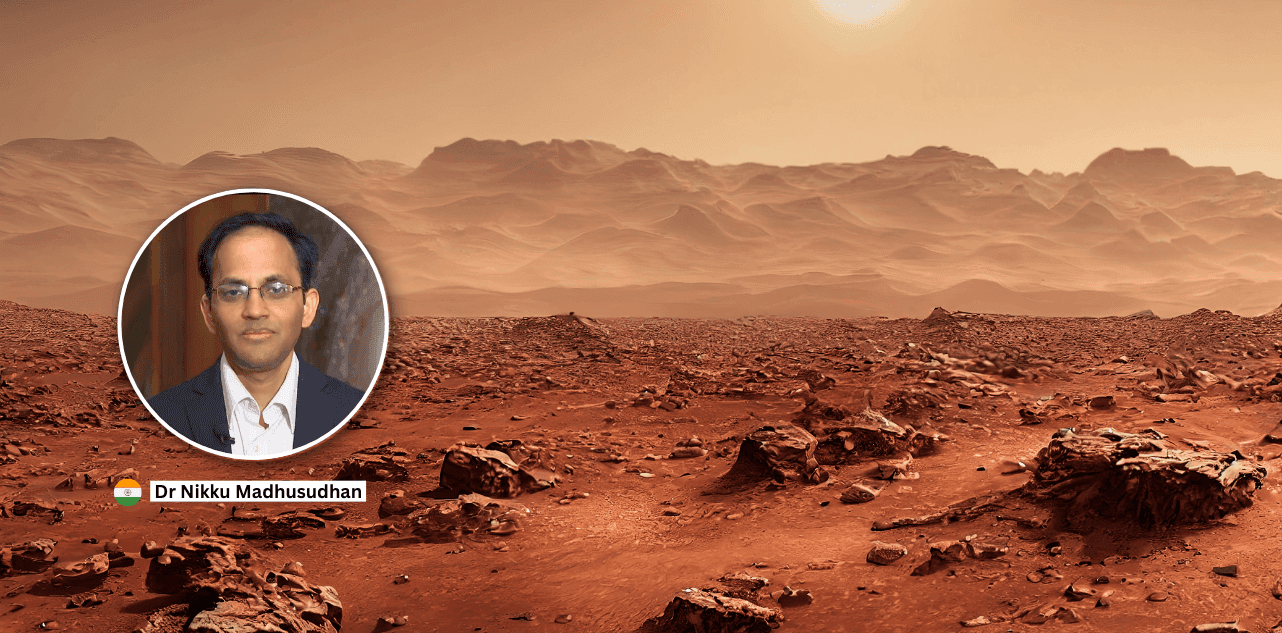Monday 16 February 2026
Indian-British astrophysicist Found the Possibility of Alien Life
Share

Indian-British astrophysicist Dr Nikku Madhusudhanand his team at Cambridge University have identified potential signs of alien life on a distant planet called K2-18b.
With the help of NASA's James Webb Space Telescope (JWST), the team detected the presence of dimethyl sulfide (DMS) and dimethyl disulfide (DMDS) gases, which are particularly noteworthy as these are produced by the marine algae present in the ocean.
Dr. Nikku Madhusudhan is a renowned Indian British astrophysicist and professor at the University of Cambridge, specializing in exoplanetary science.
Born in India in 1980, Dr. Madhusudhan completed his undergraduate studies at the Indian Institute of Technology (BHU), Varanasi, earning a Bachelor of Technology degree.
He then pursued graduate studies at the Massachusetts Institute of Technology (MIT), where he obtained both his master's degree and Ph.D. in planetary science under the guidance of Dr. Sara Seager, a prominent expert in exoplanet research.
Dr. Madhusudhan's work has significantly advanced our understanding of exoplanetary atmospheres and the search for life beyond Earth. Some of his notable contributions include: Hycean Planets: Dr. Madhusudhan introduced the concept of "Hycean planets," which are ocean-covered planets with hydrogen-rich atmospheres that may offer suitable conditions for life.
Atmospheric Retrieval: He developed an improved technique for atmospheric retrieval, allowing scientists to infer the compositions of exoplanets more accurately.
Exoplanet Research: His research has explored the possibilities of life on various types of exoplanets, pushing the boundaries of how scientists define habitability.
Dr. Madhusudhan's team recently made a significant breakthrough in the search for extraterrestrial life. Using data from the James Webb Space Telescope, they detected dimethyl sulfide (DMS) in the atmosphere of exoplanet K2-18b, located 120 light-years from Earth.
DMS is a molecule produced by living organisms on Earth, primarily marine algae. This discovery could be a strong indication of biological activity on K2-18b, although further confirmation is needed.
Dr. Madhusudhan's research has brought us closer to answering the question of whether we are alone in the universe. His findings also reignite interest in the Fermi Paradox, which asks why we haven't encountered intelligent life despite the high probability of its existence.
The James Webb Space Telescope will continue to study K2-18b, and more powerful space observatories are being planned to search for life-supporting conditions across the galaxy.
Newsletter
Stay up to date with all the latest News that affects you in politics, finance and more.